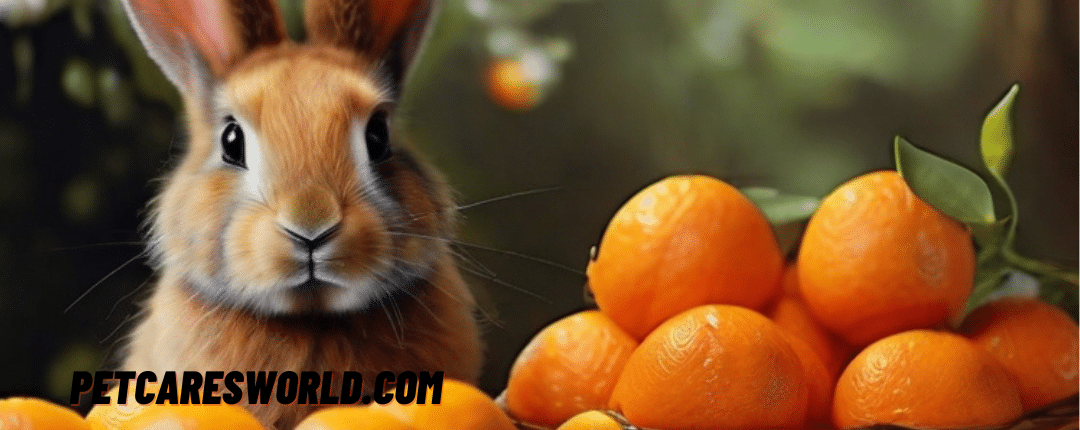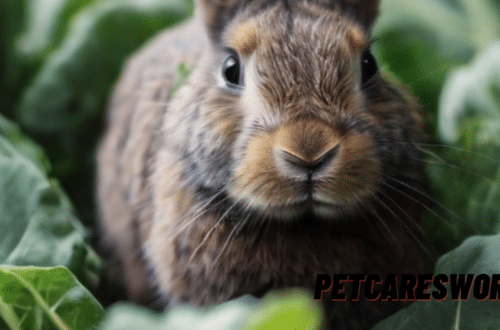Rabbits are adorable creatures known for their fluffy fur, twitching noses, and love for munching on greens. However, when it comes to their diet, questions often arise about what they can and cannot eat. One common query that pops up is, Can rabbits have oranges?
In this comprehensive guide, we’ll delve into this question and explore the intricacies of rabbits’ dietary needs.
Rabbits’ Dietary Requirements
Before we address whether rabbits can indulge in oranges, it’s crucial to understand their dietary requirements. Rabbits are herbivores, meaning their diet primarily consists of plant-based foods. In the wild, they graze on grass, weeds, and various greens to meet their nutritional needs.
Exploring the Nutritional Value of Oranges

Oranges are renowned for being rich in vitamin C, fiber, and antioxidants, making them a popular choice among humans for a healthy snack. However, when it comes to rabbits, the situation is slightly different.
Can Rabbits Safely Consume Oranges?
While oranges contain beneficial nutrients, they’re not an ideal choice for rabbits. Oranges are highly acidic fruits, which can upset the delicate balance of a rabbit’s digestive system.
Potential Risks of Feeding Oranges to Rabbits
Feeding oranges to rabbits can pose several risks to their health. The high acidity levels in oranges can lead to digestive issues such as diarrhea and stomach upset. Additionally, the sugar content in oranges is relatively high, which can contribute to obesity and dental problems in rabbits.
Alternatives to Oranges for Your Rabbit
If you’re looking to treat your rabbit to a fruity snack, there are plenty of safe alternatives to oranges.
Opt for rabbit-friendly fruits and vegetables such as apples, strawberries, carrots, and leafy greens like kale and spinach.
Introducing New Foods to Your Rabbit’s Diet
When introducing new foods to your rabbit’s diet, it’s essential to do so gradually.
Rabbits have sensitive digestive systems, and sudden dietary changes can cause gastrointestinal upset. Start by offering small amounts of the new food and monitor your rabbit for any adverse reactions.
Signs of Digestive Upset in Rabbits
It’s crucial to be vigilant for signs of digestive upset in rabbits. Common symptoms include diarrhea, loss of appetite, lethargy, and changes in stool consistency.
If you notice any of these signs, discontinue the new food immediately and consult your veterinarian.
The Importance of Hay in a Rabbit’s Diet
Hay is a staple part of a rabbit’s diet and should make up the majority of their food intake. High-quality grass hay provides essential fiber, which is crucial for maintaining proper digestion and dental health in rabbits.
Providing a Balanced Diet for Your Rabbit
In addition to hay, rabbits also require a balanced diet consisting of fresh vegetables, a small amount of pellets, and occasional treats.
It’s essential to research and understand your rabbit’s nutritional needs to ensure they receive the proper diet for optimal health and well-being.
Conclusion
While oranges may seem like a healthy snack for humans, they’re not suitable for rabbits. The high acidity and sugar content in oranges can lead to digestive problems and other health issues in rabbits.
Instead, focus on providing your rabbit with a balanced diet rich in hay, fresh vegetables, and rabbit-safe fruits. By prioritizing your rabbit’s nutritional needs, you can help them lead a happy and healthy life.






